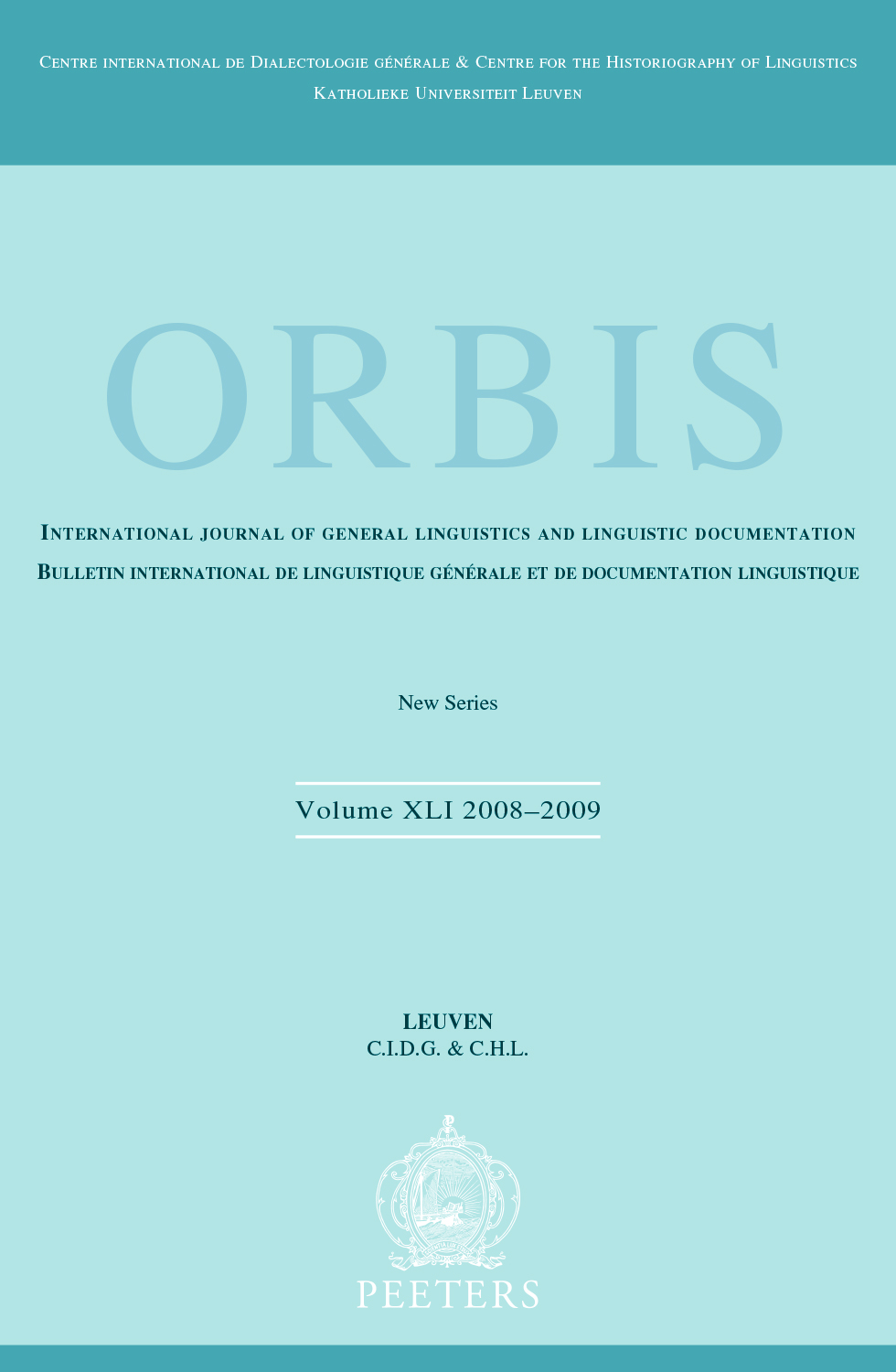 previous article in this issue previous article in this issue | next article in this issue  |

|
Document Details : Title: Clitics and Word Order since Wackernagel Subtitle: One Hundred Years of Research into Clitics and Related Phenomena Author(s): JANSE, Mark Journal: Orbis Volume: 37 Date: 1994 Pages: 389-410 DOI: 10.2143/ORB.37.0.2012786 Abstract : The year 1991 marked the centennial anniversary of the most famous of Jacob Wackernagel’s publications, entitled “Über ein Gesetz der indogermanischen Wortstellung”, which appeared in the first issue of Indogermanische Forschungen. In his article, Wackernagel examined the phenomenon which was to bear his name ever since: the regular placement of “enclitics” (pronouns and particles) in second position within clauses in Indo-European languages, based mainly on evidence from Ancient Greek, but including extensive references to Old Persian and Latin. The phenomenon came to be known as Wackernagel’s Law. Wackernagel himself seemed to be somewhat doubtful about the true Gesetzmäßigkeit of his observations, witness his use of the terms “(Stellungs)regel”, “Drang”, “Stellungsgewohnheit”, “Tendenz”, “Vorliebe”, “regelmässige Stellung”, “alte Regel” and “traditionelle Stellung” next to “(Stellungs)gesetz”, but the term “Gesetz” must have been bon ton in the historically oriented linguistics of the nineteenth century. More importantly, Wackernagel obviously meant his Law to be valid for the Indo-European proto-language, as can be gathered from the very title of his article and the use of the adjectives “alt”and “traditionell”, as well as from the numerous digressions on “andere Stellungsregeln”, the loss of the “traditionelle Stellung” or what is simply called “Schwanken” in the daughter languages. |
|
